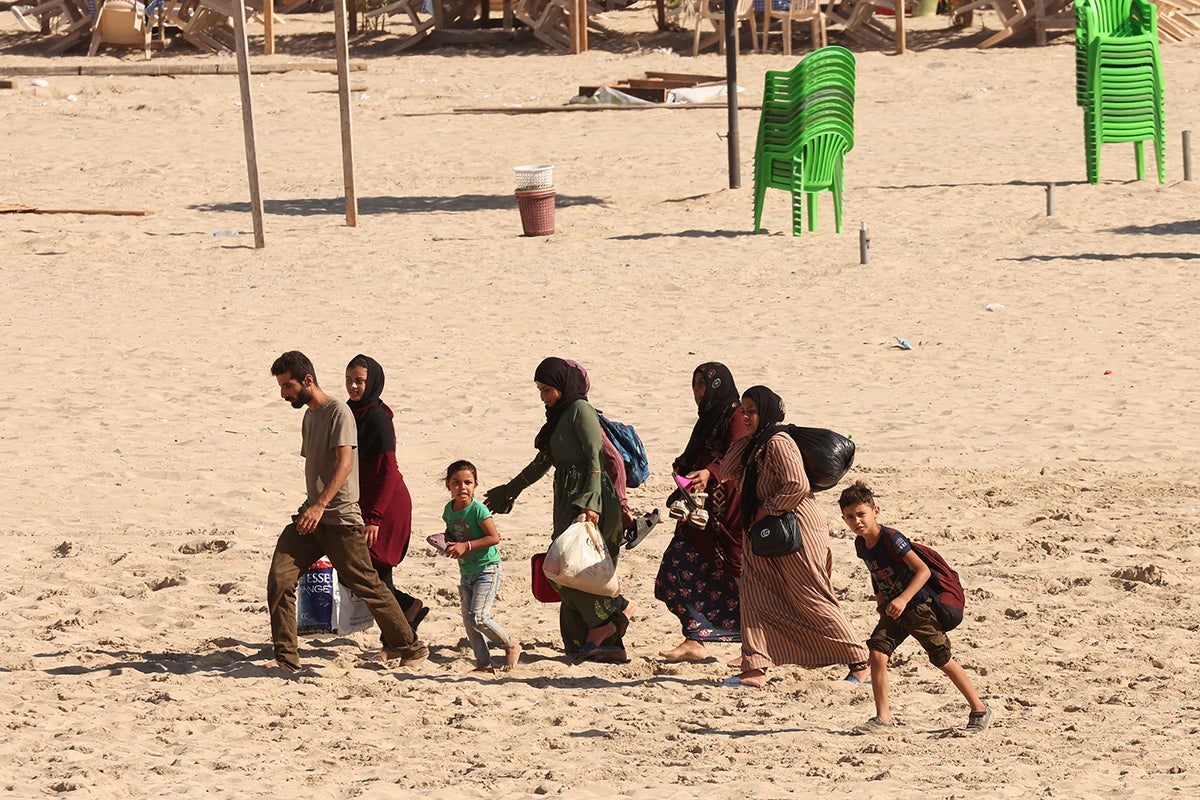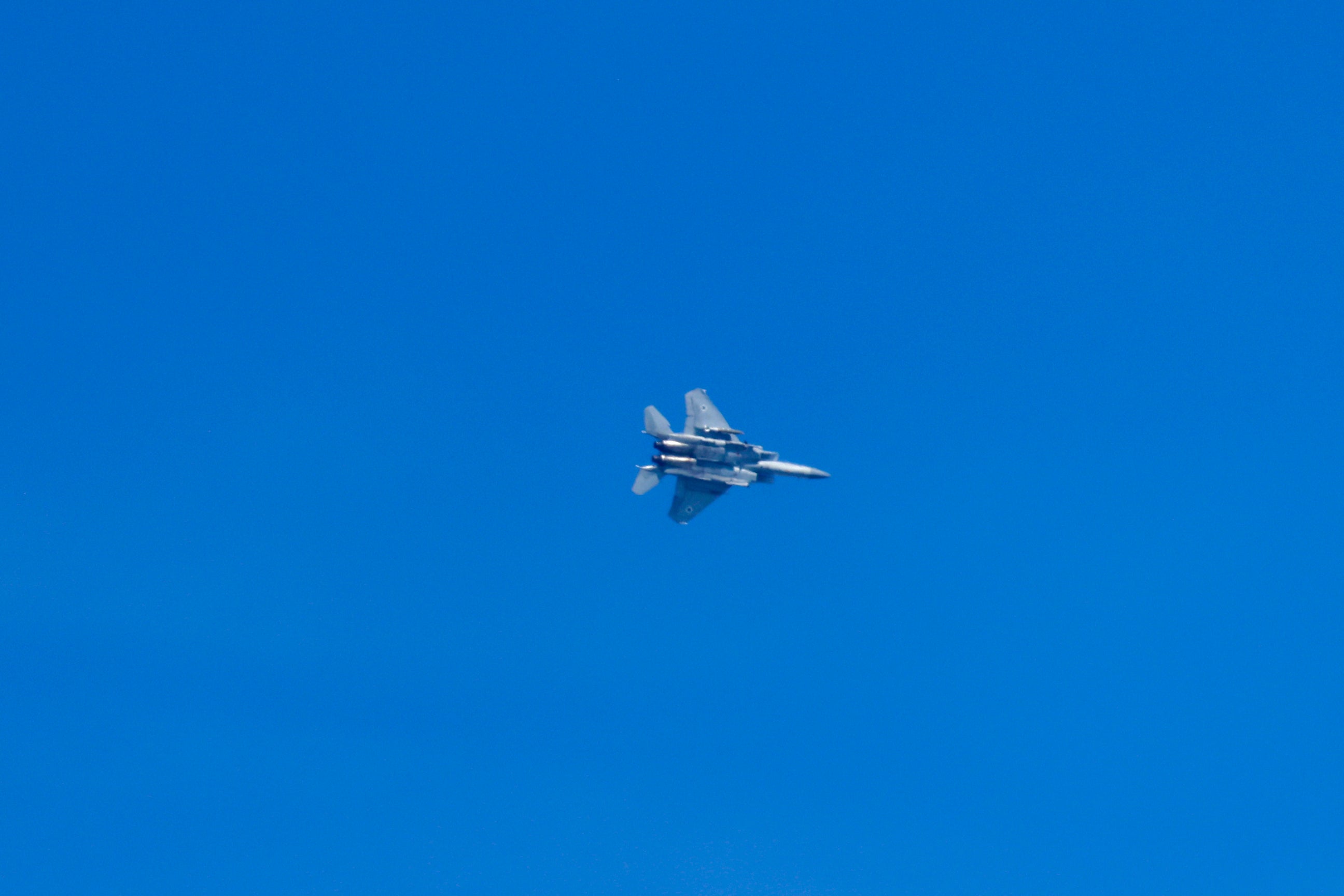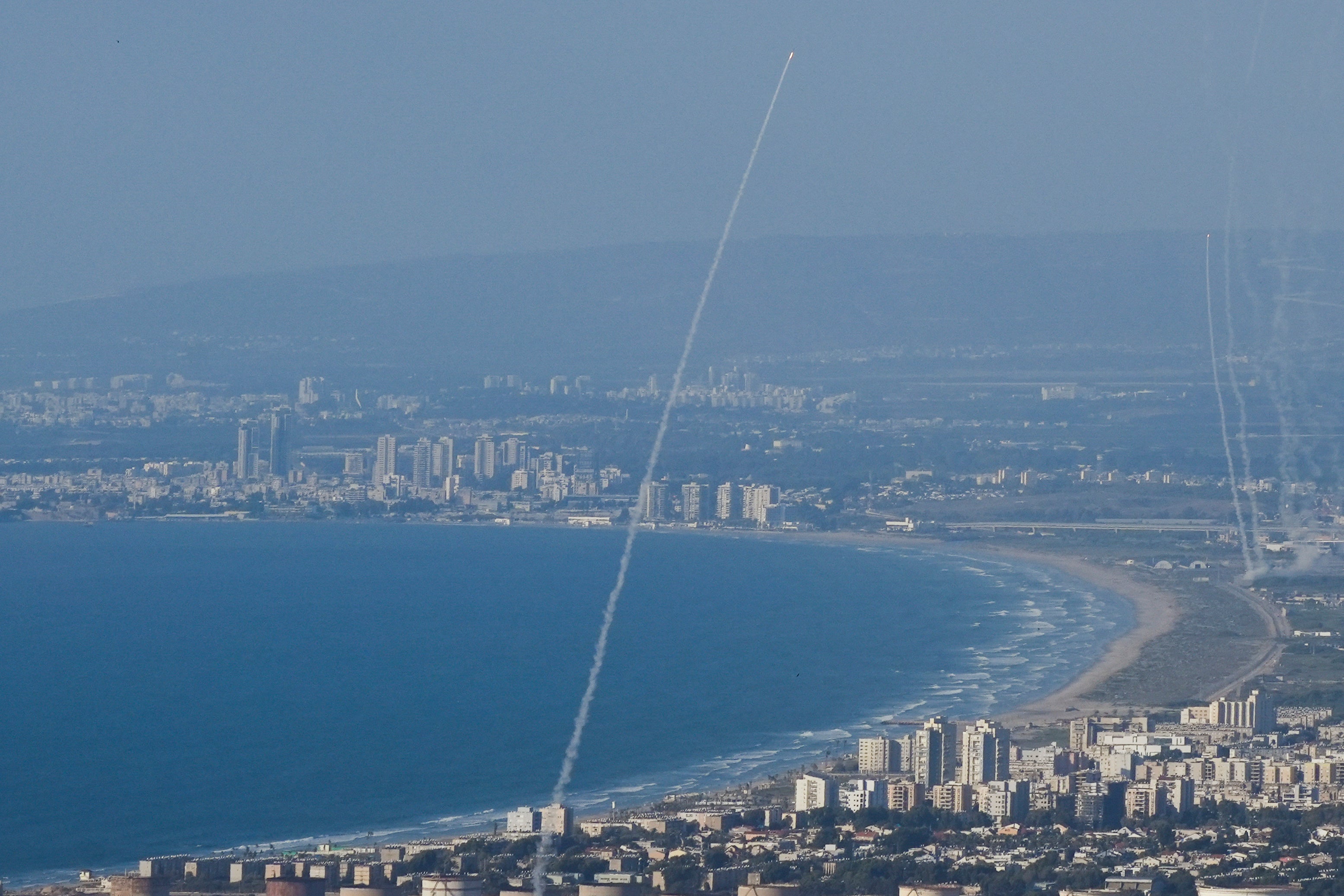
For free real time breaking news alerts sent straight to your inbox sign up to our breaking news emails
Sign up to our free breaking news emails
Sign up to our free breaking news emails
Israel has intensified its airstrikes against Hezbollah in Lebanon – killing more than 270 people and injuring more than 1,000 others in the deadliest day for the country since the 2006 Israeli-Hezbollah war, health officials have said.
Children and women were among the dead, with thousands fleeing from the south towards Beirut. Lebanese Health Minister Firass Abiad told a news conference that the strikes hit hospitals, medical centres and ambulances. The government ordered schools and universities to close across most of the country and began preparing shelters for people displaced from the south.
Israel's aerial bombardment marked the most widespread strikes in nearly a year of cross-border fire triggered by the war in Gaza. Israel's military claimed it had hit around 800 sites linked to Hezbollah weapons in Lebanon's south, the eastern Bekaa valley and northern region near Syria.
Some strikes hit in residential areas of towns in the south and the eastern Bekaa Valley. One strike hit a wooded area as far away as Byblos in central Lebanon, more than 80 miles from the border north of Beirut. In response, Hezbollah fired dozens of rockets into Israel, having launched more than 100 on Sunday.
The air strikes have intensified pressure on Hezbollah, which last week suffered an attack its leader Hassan Nasrallah called "unprecedented in the history" of the group, after thousands of pagers and walkie-talkies used by its members exploded.
The operation was widely blamed on Israel, and its spy agency Mossad, but Israeli officials have not confirmed or denied responsibility.
In another major blow, an Israeli airstrike on Beirut's southern suburb on Friday targeted senior Hezbollah commanders, killing 45 people, according to the Lebanese health ministry.

Hezbollah said 16 members of the group were among the dead, including senior leader Ibrahim Aqil and another commander, Ahmed Wahbi.
On Monday afternoon, Israeli military spokesman Rear Admiral Daniel Hagari repeated warnings urging residents to immediately evacuate areas where Hezbollah is storing weapons, including in the valley. The warnings left open the possibility that some residents could live in or near targeted structures without knowing that they are risk.
Prime Minister Benjamin Netanyahu said Israel faced "complicated days" as it stepped up attacks. "I promised that we would change the security balance, the balance of power in the north - that is exactly what we are doing," he said in a message following a situational assessment at military headquarters in Tel Aviv.
The events have pushed an already simmering region to the brink of full-scale war, with concerns the attack might be a precursor to an Israeli ground incursion into Lebanon. The threat of an all-out war have spiked in the weeks, after nearly a year of clashes sparked by the Israeli war against another Tehran ally, Hamas, in Gaza. However, an Israeli military official told the Associated Press that Israel is focused on aerial operations and has no immediate plans for a ground operation. The official, speaking on condition of anonymity in keeping with regulations, said the strikes are aimed at curbing Hezbollah's ability to launch more strikes into Israel.
The Lebanese Health Ministry put the death toll of the strikes at at least 274, including 21 children and 31 women. Another 1,024 were wounded. It asked hospitals in southern Lebanon and the eastern Bekaa Valley to postpone surgeries that could be done later. The ministry said in a statement that its request aimed to keep hospitals ready to deal with people wounded by "Israel's expanding aggression on Lebanon."

Lebanese media reported that residents received text messages urging them to move away from any building where Hezbollah stores arms until further notice.
"If you are in a building housing weapons for Hezbollah, move away from the village until further notice," the Arabic message read. Lebanon's information minister, Ziad Makary, said in a statement that his office in Beirut had received a recorded message telling people to leave the building.
"This comes in the framework of the psychological war implemented by the enemy," Mr Makary said.
Imad Kreidieh, the head of Lebanese telecoms company Ogero, told Reuters on Monday that more than 80,000 automated calls asking people to evacuate their areas were detected on the network.
Israel's Defence Minister Yoav Gallant said the actions would continue until "we achieve our goal to return the northern residents safely to their homes," setting the stage for a long conflict as Hezbollah has vowed to fight on until there is a ceasefire in Gaza.

The fighting has raised fears that the United States, Israel's close ally, and Iran will be sucked into a wider Middle East war. Iran's Foreign Ministry spokesperson Nasser Kanaani condemned the Israeli strikes. "There will be dangerous consequences," he said.
The current Israeli conflict with Hezbollah was ignited a day after Hamas launched its attack inside Israel on 7 October, killing around 1,200 people and leading to 251 more being taken hostage. Israel's ensuing aerial and ground assault on Gaza has killed more than 41,000 Palestinians, according to the local health ministry, and displaced more than 90 per cent of the population.
In the eastern Beirut district of Sassine, state employee Joseph Ghafary said he feared that Hezbollah would respond to Israel's intensified strikes and that a full-blown war would break out.
"If Hezbollah carries out a major operation, Israel will respond and destroy more than this. We can't bear it," he said.
"Israel wants to strike, it wants to keep going, meaning it is squeezing Sayyed Hassan (Nasrallah) to start a war. It is definitely dangerous."
Mohammed Sibai, a shopowner in the Beirut neighbourhood of Hamra, told Reuters that he saw the escalation in strikes as "the beginning of the war."
"If they want war, what can we do? It was imposed on us. We cannot do anything," he said.
Reuters and Associated Press contributed to this report

 By The Independent (World News) | Created at 2024-09-23 15:40:23 | Updated at 2024-09-30 07:26:18
6 days ago
By The Independent (World News) | Created at 2024-09-23 15:40:23 | Updated at 2024-09-30 07:26:18
6 days ago



